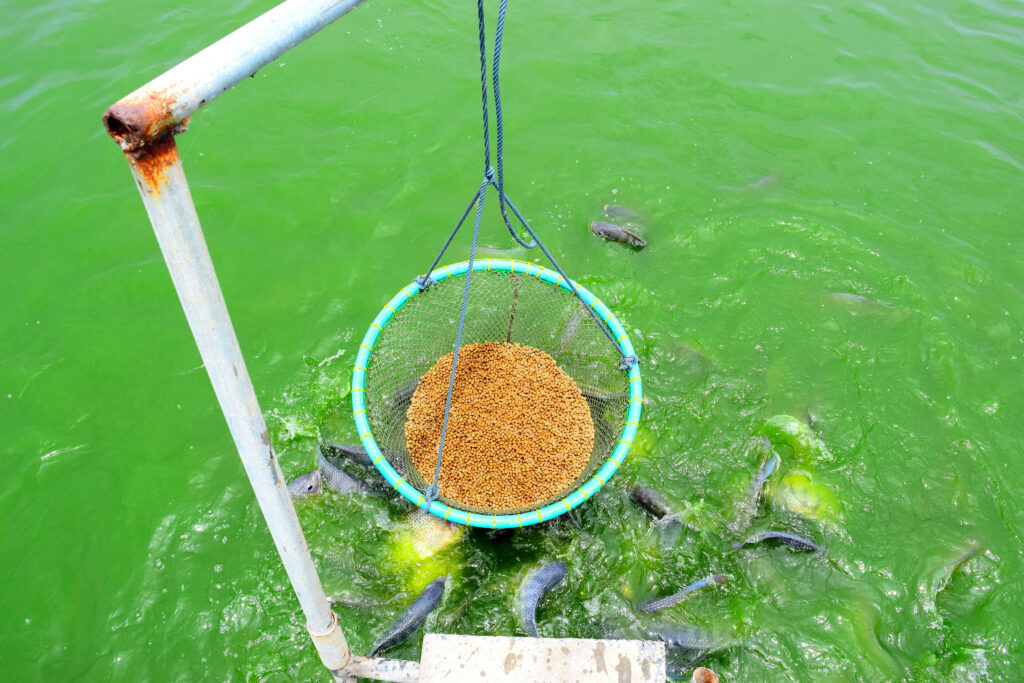Understanding the Threat: Ammonia and Nitrites in Aquaculture

One of the most significant challenges in sustainable aquaculture is managing water quality. Ammonia (NH3) and nitrites (NO2-) are nitrogenous compounds that are naturally produced in aquaculture systems as by-products of fish waste and uneaten feed. In small quantities, these compounds can be tolerated by aquatic organisms. However, in the confined spaces of aquaculture systems, they can quickly accumulate to levels that are lethal to fish and other aquatic life. Ammonia, even at low concentrations, can cause serious harm to fish, impairing their growth, damaging their gills, and leading to high mortality rates. Nitrites, meanwhile, interfere with blood’s ability to carry oxygen, effectively suffocating aquatic organisms.
The Biochemical Solution: Nitrogen Cycle Enhancement with Oxynova
Oxynova harnesses the power of nitrifying and denitrifying bacteria, alongside specific enzymes,
to catalyze the conversion of harmful ammonia and nitrites into harmless nitrogen gas (N2)
through a process known as the nitrogen cycle. This cycle is a series of biochemical
transformations that involve several steps:
- Ammonia Oxidation: Nitrifying bacteria, first oxidize ammonia to nitrites. This step is crucial as it begins the detoxification process of ammonia, which is the most toxic form of nitrogen waste in aquaculture systems.
- Nitrite Oxidation: Following the conversion of ammonia to nitrites steps in to oxidize nitrites into nitrates (NO3-). Nitrates are significantly less toxic to aquatic organisms and can be tolerated in higher concentrations.
- Denitrification: The final stage involves denitrifying bacteria, which convert nitrates into nitrogen gas. This gas then escapes into the atmosphere, effectively removing nitrogenous waste from the water.
By promoting these biochemical pathways, Oxynova not only mitigates the toxicity of ammonia and nitrites but also contributes to the overall health and stability of aquaculture ecosystems.
The Integration of Oxynova
The integration of Oxynova into aquaculture systems represents a significant advancement for several reasons:
- Sustainability: By naturally converting harmful nitrogenous wastes into nitrogen gas, Oxynova promotes a more sustainable approach to aquaculture. It reduces the need for frequent water changes, saving on water and energy costs.
- Fish Health and Productivity: Improved water quality means healthier fish and other aquatic organisms, leading to better growth rates, higher yields, and reduced mortality rates.
- Environmental Protection: By preventing the accumulation of toxic nitrogenous compounds, Oxynova helps protect the surrounding environment from the negative impacts of aquaculture effluent.
